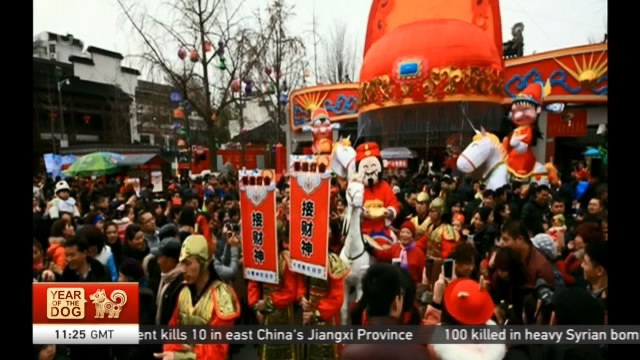
19:42, 20-Feb-2018
'Powu' Traditions: Fifth day of holiday dedicated to god of wealth

Today is the fifth day of the Chinese lunar new year. Commonly known as "powu", it's the festival's most celebrated day after new year's eve. There are lots of traditions and rituals for this day, some still observed and others forgotten. Now, let's check them out.
According to legend, the fifth day of the first lunar month is the birthday of the god of wealth. People celebrate this date with wishes to usher in a year of good fortune.
Traditionally, the custom of "warding off poverty" is observed. People would get up at dawn, set off firecrackers and clean their houses.
People begin to do things that have been forbidden during the prior four days, such as sweeping the floor and throwing out garbage. The main dish served is again Jiaozi, or dumplings, because jiaozi are shaped like the gold and silver ingots, indicating wealth. In some places, it's believed making jiaozi can shut off enemies' mouths, preventing them from speaking bad words against you.
This is also the day most businesses reopen after closing for the new year. Since many people start back at work on this day, another travel rush across China should be expected.
The China Railway Corporation has announced that around 9-point-5 million train trips were taken on Monday. This was half a million more than the day before. SW, CGTN.

SITEMAP
Copyright © 2018 CGTN. Beijing ICP prepared NO.16065310-3
Copyright © 2018 CGTN. Beijing ICP prepared NO.16065310-3